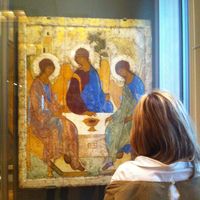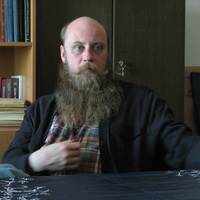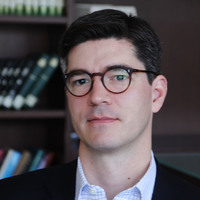
Tamara Djermanovic Tanasijevic
Tamara Djermanovic
Associated Professor, Humanities Department, Universitat Pompeu Fabra, Barcelona (since 1996)
My research considers the problem of a particular development of Literature, Art and Aesthetics in the Russian and Eastern slavic world and forms of dialogue that were being established in these fields with the Western Europe.
I was born in Belgrade (1965, Serbia, then Yugoslavia), where I completed my BA degree Comparative Literature at the University of Belgrade (1990)
I move to Barcelona when the war in my former country begins and I finished my PhD in Humanities at the University Pompeu Fabra ('Dostoyevski and his vision of the relations of Russia and the West in Notes from Underground, The Possessed, The Brothers Karamazov', 2004)
Academic engagement:
- Vice Dean, Humanities Department, Universitat Pompeu Fabra (2018-2023)
- IP of the Research Group Seminari d’Estudis Eslaus (Seminar of Slavic
Studies), SGR 1350 (since 2017)
- Researcher of Humanities Department, UPF (since 1996)
- Teaching: Aesthetics and Philosophy of Culture (from Icons to Tarkovsky), 19 Century Eastern Slavic Literature (From Gogol to Tolstoy), Silver Age of the 20 Century Russian and Soviet Literature
Books:
1) 'El universo de Dostoievski', Acantilado, 2021
2) Andréi Tarkovski y la cultura universal', Shangrila, Valencia, 2020 [Djermanovic Tamara y Velykodna Olena, Coords.].
3) 'Достоевский между Россией и Западом', Rudomino, Moskva, 2013.
4) 'La contruccion estética de Europa', Eds., Comares, 2014
5) 'Dostoyevski entre Rusia y Occidente", Herder, 2006
6) 'Viaje a mi país ya inexistente, retorno a la Antigua Yugoslavia', ALTAÏR, 2013
7) 'Put u moju nespostojecu zemlju', SAMIZDAT, Beograd, 2019
8) 'Rusia y España, Literatura e historia', Dossier 104p. (coordinación), CUADERNOS HISPANOAMERICANOS, Nº777, 2015, pp. 1-104.
9) 'La espiritualidad ortodoxa en la obra de F.M. Dostoyevski"' Seminario de Teologia ortodoxa San Gregori Palamás, 2006
Book chapters/ Capítulos de libros:
- "La invasión de Ucrania en el contexto del duelo entre Rusia y Occidente", en 'Ucrania en su contexto geopolítico, UGR, 2023, pp.41-57
- “Referencias literarias y estéticas en Andréi Tarkovski” en: Andréi Tarkovski y la cultura universal, Shangrila, 2020, pp. 54-72
- “Transiciones en la Antigua Yugoslavia y antropología de los eslavos del sur: el pensamiento sobre la idea del ‘ser balcánico en la obra de Jovan Cvijic e Ivo Andric”, en 'Transiciones culturales, perspectivas desde Europa central y del este' [Elena Calvo y Luis Soler eds.], Consejo Superior de Investigaciones Científicas, 2016, pp. 195-221.
- "Дијалог с делима књижевне класике у филмовима Андреја Тарковског", en Компаративна књижевност, Београд: Филолошки факултет 2016.
- "Las referencias rusas y europeas en el cine de Andréi Tarkovski" en 'La construcción estética de Europa', COMARES, 2014, pp. 51-72.
- "Диалог с философской и литературной традицией в фильмах Андрей Рублев и Жертвоприношение Андрея Тарковского" en: Феномен Андрея Тарковского в интеллектуальной и художественной культуре, НИКА Москва, 2008, pp.172-179,
- “Comparative Literature Studies in Spain – a Quixotic mission”, en Comparative Literature Studies Today, pp. 163-171, Universidad de Belgrado, 2005.
- “Dostoyevski y España, una aproximación”, en Frontera y comunicación cultural entre España y Rusia, Iberoamiericana, Madrid & Vervuert Verlag, Frankfurt am Main, 2006, pp. 243-254
- “Дуэль России и Европы в Легенде о Великом инквизиторе Достоевского”, ен: Пограничные культуры между Востоком и Западом: Россия и Испания (‘Culturas limítrofes entre Oriente y Occidente: Rusia y españa´), КАНУН, Санкт-Петербург, 2001, pp.114-123.
- “Cruce de tradiciones, variedad de propuestas” en: Vientos del Este, los nuevos cines en los países socialistas europeos [eds. MONTERDE, José Enrique, LOSILLA, Carlos et INSTITUT VALENCIÀ DE CINEMATOGRAFIA, 2006, pp.57-71.
- "Crimen y castigo, de Fiódor Mijáilovich Dostoyevski", en Jordi Llovet (ed.), Literatura amable, Pasado & Presente, Barcelona, 2018
Papers and Academic Articles see in CV
Supervisors: Rafael Argullol
Associated Professor, Humanities Department, Universitat Pompeu Fabra, Barcelona (since 1996)
My research considers the problem of a particular development of Literature, Art and Aesthetics in the Russian and Eastern slavic world and forms of dialogue that were being established in these fields with the Western Europe.
I was born in Belgrade (1965, Serbia, then Yugoslavia), where I completed my BA degree Comparative Literature at the University of Belgrade (1990)
I move to Barcelona when the war in my former country begins and I finished my PhD in Humanities at the University Pompeu Fabra ('Dostoyevski and his vision of the relations of Russia and the West in Notes from Underground, The Possessed, The Brothers Karamazov', 2004)
Academic engagement:
- Vice Dean, Humanities Department, Universitat Pompeu Fabra (2018-2023)
- IP of the Research Group Seminari d’Estudis Eslaus (Seminar of Slavic
Studies), SGR 1350 (since 2017)
- Researcher of Humanities Department, UPF (since 1996)
- Teaching: Aesthetics and Philosophy of Culture (from Icons to Tarkovsky), 19 Century Eastern Slavic Literature (From Gogol to Tolstoy), Silver Age of the 20 Century Russian and Soviet Literature
Books:
1) 'El universo de Dostoievski', Acantilado, 2021
2) Andréi Tarkovski y la cultura universal', Shangrila, Valencia, 2020 [Djermanovic Tamara y Velykodna Olena, Coords.].
3) 'Достоевский между Россией и Западом', Rudomino, Moskva, 2013.
4) 'La contruccion estética de Europa', Eds., Comares, 2014
5) 'Dostoyevski entre Rusia y Occidente", Herder, 2006
6) 'Viaje a mi país ya inexistente, retorno a la Antigua Yugoslavia', ALTAÏR, 2013
7) 'Put u moju nespostojecu zemlju', SAMIZDAT, Beograd, 2019
8) 'Rusia y España, Literatura e historia', Dossier 104p. (coordinación), CUADERNOS HISPANOAMERICANOS, Nº777, 2015, pp. 1-104.
9) 'La espiritualidad ortodoxa en la obra de F.M. Dostoyevski"' Seminario de Teologia ortodoxa San Gregori Palamás, 2006
Book chapters/ Capítulos de libros:
- "La invasión de Ucrania en el contexto del duelo entre Rusia y Occidente", en 'Ucrania en su contexto geopolítico, UGR, 2023, pp.41-57
- “Referencias literarias y estéticas en Andréi Tarkovski” en: Andréi Tarkovski y la cultura universal, Shangrila, 2020, pp. 54-72
- “Transiciones en la Antigua Yugoslavia y antropología de los eslavos del sur: el pensamiento sobre la idea del ‘ser balcánico en la obra de Jovan Cvijic e Ivo Andric”, en 'Transiciones culturales, perspectivas desde Europa central y del este' [Elena Calvo y Luis Soler eds.], Consejo Superior de Investigaciones Científicas, 2016, pp. 195-221.
- "Дијалог с делима књижевне класике у филмовима Андреја Тарковског", en Компаративна књижевност, Београд: Филолошки факултет 2016.
- "Las referencias rusas y europeas en el cine de Andréi Tarkovski" en 'La construcción estética de Europa', COMARES, 2014, pp. 51-72.
- "Диалог с философской и литературной традицией в фильмах Андрей Рублев и Жертвоприношение Андрея Тарковского" en: Феномен Андрея Тарковского в интеллектуальной и художественной культуре, НИКА Москва, 2008, pp.172-179,
- “Comparative Literature Studies in Spain – a Quixotic mission”, en Comparative Literature Studies Today, pp. 163-171, Universidad de Belgrado, 2005.
- “Dostoyevski y España, una aproximación”, en Frontera y comunicación cultural entre España y Rusia, Iberoamiericana, Madrid & Vervuert Verlag, Frankfurt am Main, 2006, pp. 243-254
- “Дуэль России и Европы в Легенде о Великом инквизиторе Достоевского”, ен: Пограничные культуры между Востоком и Западом: Россия и Испания (‘Culturas limítrofes entre Oriente y Occidente: Rusia y españa´), КАНУН, Санкт-Петербург, 2001, pp.114-123.
- “Cruce de tradiciones, variedad de propuestas” en: Vientos del Este, los nuevos cines en los países socialistas europeos [eds. MONTERDE, José Enrique, LOSILLA, Carlos et INSTITUT VALENCIÀ DE CINEMATOGRAFIA, 2006, pp.57-71.
- "Crimen y castigo, de Fiódor Mijáilovich Dostoyevski", en Jordi Llovet (ed.), Literatura amable, Pasado & Presente, Barcelona, 2018
Papers and Academic Articles see in CV
Supervisors: Rafael Argullol
less
Related Authors
Dr. Scott Kenworthy
Miami University
Ani Kokobobo
University of Kansas
Armando Marques-Guedes
UNL - New University of Lisbon
Giulia Sissa
Ucla
senka anastasova
Ss. Cyril and Methodius University in Skopje, Republic of Macedonia
Vera Shevzov
Smith College
Fjodor Uspenskij
Vinogradov Russian Language Institute
Enrico Cirelli
Università di Bologna
Alexander Treiger
Dalhousie University
Warren Woodfin
Queens College of the City University of New York










Uploads
Papers by Tamara Djermanovic Tanasijevic
This article aims to present the work of the Spanish philosopher Maria Zambrano (1904-1991) to Serbian audience. Her name and work were enshrouded in silence in Spain itself until the last decades of the 20th century. Zambrano cultivated a large part of her intellectual activities in exile during the Spanish Civil War. After returning to Spain almost half a century later, in 1988, she received the highest national recognition for literature, the Cervantes Prize. Anthropological existentialism, political and social engagement and Spain’s fate are some of the main topics on which Zambrano reflects in different ways in her numerous published books. The scope of her thought, which follows many postulates of Spinoza’s ethics, is now finally available in the first complete edition of Maria Zambrano’s collected works in Spanish, which opens the possibility of a systematic approach to certainly one of the greatest figures of Spanish philosophy.
En este artículo me centraré en el primer bloque de libros, y sobre todo en Visión desde el fondo del mar, su obra magna desde el punto de vista objetivo y subjetivo, un ejemplo óptimo de lo que se entiende como el género de la autoficción literaria; un libro de mil doscientas páginas de cuya preparación, gestación y escritura fui testigo directo.
Palabras claves: DON QUIJOTE, DOSTOYEVSKI, EL PRÍNCIPE MISHKIN, IDEALES, FICCIÓN LITERARIA, PLAGIO, EL QUIJOTISMO RUSO
In Fedor Mikhailovich Dostoevsky’s body of work (1821-1881) one can find more than 30 references to Don Quixote; while some of them allude to the novel of Don Quixote itself, other ones refer to Cervantes’ hero as an archetypal figure. Since decades ago, the Russian literary criticism has been interested in the Russian quixotism – including Dostoevsky’s work – and important studies on this subject have been published recently. This study follows Dostoevsky’s references on La Mancha’s Knight as an independent figure of Cervantes’ novel, and the different symbolism Don Quixote’s figure has had in both Russian people and Russian intelligentsia.
Keywords: Don Quixote, Dostoevsky, Prince Myshkin, IDEALS, LITERARY FICTION, PLAGIARISM, RUSSIAN QUIXOTISM
Pensadora, erudita y poeta serbia, Anica Savic Rebac (1892-1953) se mueve con ligereza en medio de grandes temas y movimientos humanísticos: la Antigüedad clásica griega, la filosofía medieval, la cultura renacentista o del romanticismo exasperado, que se proyectan al pasado y al futuro de la cultura universal. La concepción del eros platónico es su referencia más continua, desde sus primeras poesías, hasta los ensayos escritos en el último periodo, en los que conecta el pensamiento griego con Dante, Shakespeare, Spinoza, Shelley, Goethe. Como autora del siglo XX, le parece fundamental el cambio de paradigma que este siglo plantea en el campo de la historia de la cultura: el hecho de que la época contemporánea plantea de manera indiscutible que en el campo de la filosofía, literatura y arte no hay que buscar divergencias, sino profundas similitudes internas entre diferentes períodos de su desarrollo. Su obra ha sido calificada de ser ‘tan buena que parece ser escrita por un hombre escrita por un hombre’1 - un comentario que no necesita gran hermenéutica para ilustrar el destino del pensamiento filosófico femenino hasta la actualidad. Sus escritos han sido reeditados y estudiados de manera intensa en las últimas décadas en su país de origen. El presente trabajo presenta su pensamiento por primera vez en el ámbito de habla hispana.
A Serbian thinker, poet and scholar, Anica Savic Rebac (1892-1953) moves through the different themes and movements of the Western cultural tradition – from the Greek classical philosophy to the Medieval philosophy, from the Renaissance culture to the Romanticism, projecting the past and the future of the universal culture. Plato’s conception of Eros is a constant of her oeuvre, and can be found from her early poetry works to her late essays. In them, she connects the Greek thought with Dante, Shakespeare, Spinoza, Shelley, Goethe. As the author of the twentieth century , she insists in the importance to understand how change the paradigm change in the field of cultural history in our era: the fact that in the field of philosophy , literature and art we don’t to have to search for the differences, but for the deep internal similarities between different periods of development. Her work has been described as “being so good that it seems to be written by a man”2 – a comment that does not need much of hermeneutics to illustrate the fate of female philosophical thought until today. Her writings have been reprinted and studied intensively in the last decades in Serbia. This paper presents for the first time the thought of Anica Savic Rebas in Spanish language.
- Dostoyeski en el espejo del pensamiento español, Tamara Djermanovic. 4-20
- Andréi Tarkovski y «Los españoles», Carlos Muguiro. 21-41
- Traductores del ruso en España: los Marcoff, esbozo biográfico, Iván García Sala. 42-53
- La recepción de la literatura española del siglo XX en Rusia, Olena Velykodna. 54-72
- Gulag y literatura, Marta Rebón, Ferrán Mateo. 73-81
- De traducciones y viajes, Selma Ancira. 82-88
- ANNEXO Poesía rusa en traducción, selección de poemas (bilngüe)
This article aims to present the work of the Spanish philosopher Maria Zambrano (1904-1991) to Serbian audience. Her name and work were enshrouded in silence in Spain itself until the last decades of the 20th century. Zambrano cultivated a large part of her intellectual activities in exile during the Spanish Civil War. After returning to Spain almost half a century later, in 1988, she received the highest national recognition for literature, the Cervantes Prize. Anthropological existentialism, political and social engagement and Spain’s fate are some of the main topics on which Zambrano reflects in different ways in her numerous published books. The scope of her thought, which follows many postulates of Spinoza’s ethics, is now finally available in the first complete edition of Maria Zambrano’s collected works in Spanish, which opens the possibility of a systematic approach to certainly one of the greatest figures of Spanish philosophy.
En este artículo me centraré en el primer bloque de libros, y sobre todo en Visión desde el fondo del mar, su obra magna desde el punto de vista objetivo y subjetivo, un ejemplo óptimo de lo que se entiende como el género de la autoficción literaria; un libro de mil doscientas páginas de cuya preparación, gestación y escritura fui testigo directo.
Palabras claves: DON QUIJOTE, DOSTOYEVSKI, EL PRÍNCIPE MISHKIN, IDEALES, FICCIÓN LITERARIA, PLAGIO, EL QUIJOTISMO RUSO
In Fedor Mikhailovich Dostoevsky’s body of work (1821-1881) one can find more than 30 references to Don Quixote; while some of them allude to the novel of Don Quixote itself, other ones refer to Cervantes’ hero as an archetypal figure. Since decades ago, the Russian literary criticism has been interested in the Russian quixotism – including Dostoevsky’s work – and important studies on this subject have been published recently. This study follows Dostoevsky’s references on La Mancha’s Knight as an independent figure of Cervantes’ novel, and the different symbolism Don Quixote’s figure has had in both Russian people and Russian intelligentsia.
Keywords: Don Quixote, Dostoevsky, Prince Myshkin, IDEALS, LITERARY FICTION, PLAGIARISM, RUSSIAN QUIXOTISM
Pensadora, erudita y poeta serbia, Anica Savic Rebac (1892-1953) se mueve con ligereza en medio de grandes temas y movimientos humanísticos: la Antigüedad clásica griega, la filosofía medieval, la cultura renacentista o del romanticismo exasperado, que se proyectan al pasado y al futuro de la cultura universal. La concepción del eros platónico es su referencia más continua, desde sus primeras poesías, hasta los ensayos escritos en el último periodo, en los que conecta el pensamiento griego con Dante, Shakespeare, Spinoza, Shelley, Goethe. Como autora del siglo XX, le parece fundamental el cambio de paradigma que este siglo plantea en el campo de la historia de la cultura: el hecho de que la época contemporánea plantea de manera indiscutible que en el campo de la filosofía, literatura y arte no hay que buscar divergencias, sino profundas similitudes internas entre diferentes períodos de su desarrollo. Su obra ha sido calificada de ser ‘tan buena que parece ser escrita por un hombre escrita por un hombre’1 - un comentario que no necesita gran hermenéutica para ilustrar el destino del pensamiento filosófico femenino hasta la actualidad. Sus escritos han sido reeditados y estudiados de manera intensa en las últimas décadas en su país de origen. El presente trabajo presenta su pensamiento por primera vez en el ámbito de habla hispana.
A Serbian thinker, poet and scholar, Anica Savic Rebac (1892-1953) moves through the different themes and movements of the Western cultural tradition – from the Greek classical philosophy to the Medieval philosophy, from the Renaissance culture to the Romanticism, projecting the past and the future of the universal culture. Plato’s conception of Eros is a constant of her oeuvre, and can be found from her early poetry works to her late essays. In them, she connects the Greek thought with Dante, Shakespeare, Spinoza, Shelley, Goethe. As the author of the twentieth century , she insists in the importance to understand how change the paradigm change in the field of cultural history in our era: the fact that in the field of philosophy , literature and art we don’t to have to search for the differences, but for the deep internal similarities between different periods of development. Her work has been described as “being so good that it seems to be written by a man”2 – a comment that does not need much of hermeneutics to illustrate the fate of female philosophical thought until today. Her writings have been reprinted and studied intensively in the last decades in Serbia. This paper presents for the first time the thought of Anica Savic Rebas in Spanish language.
- Dostoyeski en el espejo del pensamiento español, Tamara Djermanovic. 4-20
- Andréi Tarkovski y «Los españoles», Carlos Muguiro. 21-41
- Traductores del ruso en España: los Marcoff, esbozo biográfico, Iván García Sala. 42-53
- La recepción de la literatura española del siglo XX en Rusia, Olena Velykodna. 54-72
- Gulag y literatura, Marta Rebón, Ferrán Mateo. 73-81
- De traducciones y viajes, Selma Ancira. 82-88
- ANNEXO Poesía rusa en traducción, selección de poemas (bilngüe)
El libro en su conjunto parte de la premisa que la invasión rusa de Ucrania que comenzó en febrero de 2022 llevaba gestándose durante años. CONTENIDOS
1) Pablo de Mora: "Los nacionalismos en Ucrania: pasado y presente de una
disputa identitaria"
2) Tamara Djermanovic, "La invasión de Ucrania en el contexto del duelo entre Rusia y Occidente"
3) José M. Faraldo, "Entre imperio y nación. Solzhenitsyn y el dilema ruso"
4) Nina Kressova Iordanishvili, "El no a la guerra de la cultura rusa"
5) Pablo Martínez Sánchez, "De amigos a enemigos: Las políticas nacionales bolcheviques en la Ucrania soviética y el juicio en Járkov de 1930"
6) José Antonio Pérez Tapias, "Cuando se hace la guerra y se habla de paz sin quererla ni para Ucrania ni para el mundo. ¿Tragedia de crimen sin
castigo?
7) Ricardo Martín de la Guardia, "Las relaciones entre Ucrania, La Unión Europea y la Federación Rusa en un contexto de crisis (2014-2022)"
8) Yuri Shevchuk: El primer cine ucraniano (1893-1918) y la formación de la
identidad ucraniana moderna
9) Simón J. Suárez Cuadros, "Ucrania: desde la generación postsoviética a la generación del Maidán"
10) Juan Miguel Valdera-Gil / Benamí Barros-García, "El discurso sobre el pasado para hablar del presente: la celebración del Día de la Victoria en la Rusia de Putin"
La idea de hacer un libro que integra el conjunto de estas diferentes miradas, transversales y complementarias sobre la obra de Tarkovski, nació cuando los autores de los textos se dieron cita en Barcelona para participar en El Simposio Internacional ‘Andréi Tarkovski en el contexto de la cultura universal’ (Universidad Pompeu Fabra, 16-18 de noviembre 2016). Este encuentro fue la inspiración que origina el presente libro, junto con las clases dedicadas cada año al arte, pensamiento y estética del cineasta ruso que sus coordinadoras, Tamara Djermanovic y Olena Velykodna, comparten con sus estudiantes, ávidos de tener las claves que les aproxime más al cine-pensamiento tarkovskiano. El libro invita a descubrir los enigmas de la vida y la obra de Tarkovski sin olvidarse de las referencias a la tradición rusa y a la cultura universal.
En este diálogo, me gustaría hablar con una artista con una discapacidad, yendo más allá de la narrativa habitual de "valentía" o de lo bueno que es el artista "a pesar de" su discapacidad. Nuestra invitada es la pintora Kelly Arrontes, que es ciega.
Recientemente se ha alejado del retrato en favor de, como dice la pintora, "pasando a disfrutar con plenitud de la abstracción más absoluta." (ej. el mural háptico de 125 metros L'origen de la vida en el Parque Científico de Barcelona, 2019).
El objetivo de la conversación sería examinar las nociones de capacidad y discapacidad, los límites y las posibilidades inesperadas o ocultas del arte con el fin de ampliar la conversación más allá de una fascinación "fetichista" por la discapacidad del artista y hacia un espacio en el que el arte creado por artistas discapacitados no se define principalmente por su condición física.
La serie de diálogos es organizada por Tamara Djermanovic